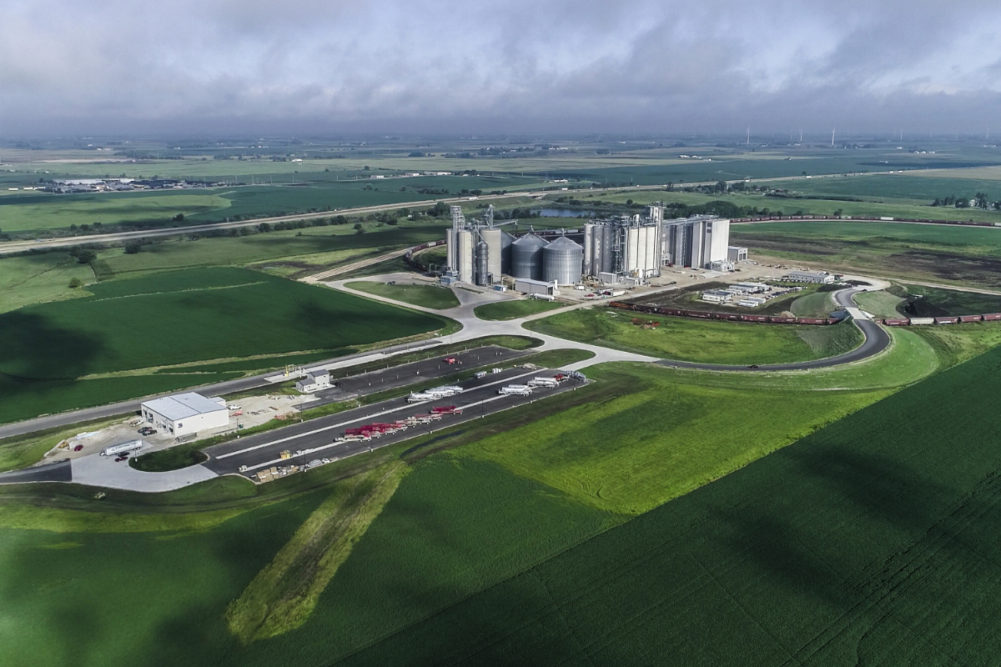CHICAGO — Short-term acceleration in demand for certain products such as flour as well as volatility in margin environments for certain commodity products played an important role in first-quarter financials at Archer Daniels Midland Co.
Net earnings attributable to ADM in the first quarter ended March 31 totaled $391 million, equal to 69¢ per share on the common stock, up 68% from $233 million, or 41¢ per share, in the same period a year ago.
Revenues for the first quarter eased 2.2%, falling to $14.97 billion from $15.3 billion.
“With major Western economies shut down, we are encouraged by the actions many nations are taking to contain the spread of COVID-19 and enable an eventual recovery,” Juan Luciano, president and chief executive officer, said during an April 30 conference call with analysts. “How that recovery unfolds, where and at what pace is something we’ll be monitoring very carefully. And while precise predictions at these points are difficult, there are a few ways we can categorize some of the market impacts we are seeing.”
Specifically, Mr. Luciano said ADM has seen short-term acceleration in demand for certain products, such as flour or staple packaged goods that the company provides flavors and ingredients for, reflecting many consumers’ decision to stock pantries in advance of stay-at-home orders. He said many of these products have reached or will reach a saturation point, and ADM expects demand to normalize.
On the other side of the coin, ADM’s refined oils for foodservice and biofuels businesses have been adversely affected by stay-at-home orders, he said.
“We will expect to see some of this demand build back in as economies reopen, though there will be a significant variability depending on when and how those reopenings occur,” he said.
Mr. Luciano said ADM also is seeing volatility in margin environments for certain commodity products as the markets constantly reevaluate global supply and demand balances due to a variety of factors. He said the company is keeping a close eye on the United States’ phase one trade agreement with China.
“We’ve seen good buying of US agricultural products by China so far this year, which could bode well for future purchases in the back half of the year,” he said. “Equally as important, our global footprint gives us continued confidence in our ability to support global trade flows of food and agricultural products.”
Another area to watch is changing consumer behaviors. Mr. Luciano said such changes may have longer-term impacts.
“For example, in the food market, we are seeing a back-to-basics approach, a desire for comfort foods, snacks and staple goods, while consumers are staying home,” he said. “We’re seeing consumers increasing their purchases online, which impacts demand for industrial starches used to make cardboard. And we’re seeing an increase in interest in products that support health and wellness. There are many unknowns. What we do know, however, is that the transformation that ADM has undertaken over the last several years is now helping ensure that we’re well equipped to pivot to whatever our customers require and whatever the world needs. We built up our product portfolio, our footprint, our innovation and our agility. And we’re planning for the future.”
Operating profit in the Ag Services and Oilseeds segment increased 1.2% in the first quarter of fiscal 2020, climbing to $422 million from $417 million. Ag services profit rose 119% during the quarter to $164 million, while crushing profit fell sharply to $70 million from $216 million.
“Excellent performances in destination marketing in structured trade finance drove extremely strong results in global trade,” said Ray G. Young, executive vice president and chief financial officer. “Robust farmer selling in Brazil drove higher year-over-year origination volumes and margins, which are partially offset by weaker results in North America. Crushing results were lower than the prior-year period. The team delivered high overall crush volumes, including a Q1 record for soy crush. Execution margins were solid, billed below their high realized margins in the first quarter of 2019, which benefit from the short crop in Argentina.”
Operating profit in the Carbohydrate Solutions segment decreased 30% in the first quarter to $68 million. Starches and sweeteners profit eased 27% during the quarter.
“The new Starches and Sweeteners subsegment, including wet mill ethanol results, was down year-over-year, largely due to about $50 million in negative mark-to-market impacts on forward sales of corn oil, much of what could reverse over the balance of the year,” Mr. Young said. “Absent those impacts, results were higher due to improved manufacturing costs, driven in part by improvements made at the Decatur (Ill.) complex last year, strong results in wheat milling as customers fill pantries and improved performance and conditions in EMEA, including stronger demand and lower input costs. Vantage Corn Processors, or VCP, which includes our dry mill ethanol results, was slightly higher versus the prior year pro forma results.”
In the Nutrition segment operating profit increased 75% to $142 million in the first quarter of fiscal 2020, up from $81 million a year ago. Within the segment, human nutrition profit improved to $113 million from $88 million, while animal nutrition increased to $29 million after posted a loss of $7 million during the same period a year ago.
Mr. Young said the human nutrition business, formerly known as WFSI, delivered strong performance and growth across the broad portfolio, including flavors, specialty ingredients and health and wellness.
“Increased sales revenue in North America and EMEA flavors, continued sales growth in alternative proteins, and additional bioactives income helped drive improved results,” he said.





